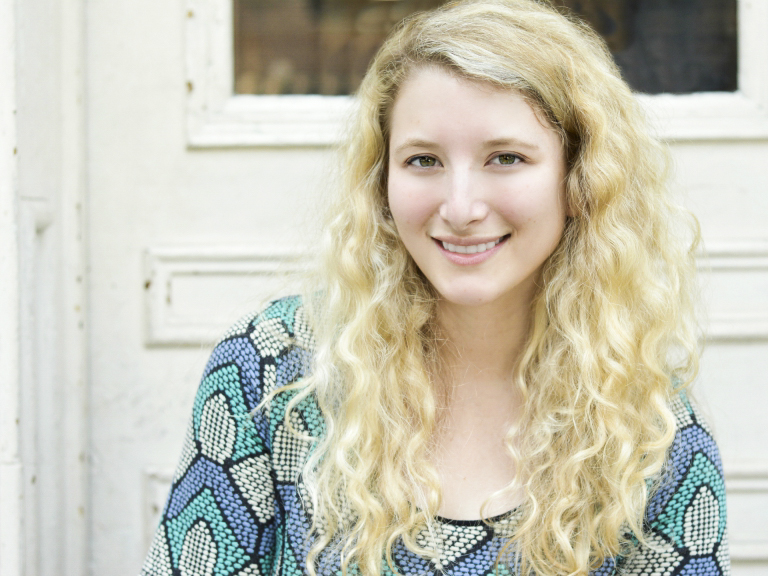
On the first day of Lily Herman ’16’s class on Digital Journalism, we watched “Spotlight” in preparation for a conversation about the changing state of the newsroom. Moments before the film began, Herman emptied out a veritable cornucopia of movie snacks for us to enjoy onto the table. The feast ranged from the ever-reliable popcorn to the more innovative dried apple slices. The snacks indicate Herman’s understanding of what University students are looking for in a class (food), but they also reflect her philosophy more generally: In an age where news sources are increasingly pressured to specialize, Herman prefers to cover all of the bases.
Despite having only graduated under two years ago, her writing has appeared in sources from TIME to TeenVogue. Though perhaps most known for her political reporting as a contributing editor for digital powerhouse Refinery29, Herman covers everything from technology to career advice. One of her middle school English teachers once insulted her writing. As if out of spite, Herman went on to write over one thousand pieces of content during her time at the University, and was an editor at Wesleying for all four years.
In some ways, her career is not far removed from how she spent her time at the University: writing. She talks about the unique challenges of being a recently graduated instructor.
“I have to walk in and immediately command a room because I could be a student for all anyone knows,” she said.
Still, the instructor’s perspective has shed new light on life at the University.
“It’s interesting seeing the school from the side of an instructor, especially in terms of logistics,” Herman said. “Even having to accept people on Drop/Add is a surreal experience.”
There have been positive surprises as well.
“I think when people say ‘Wesleyan students are so smart, so nice, so great!’ there’s a bit of cynicism when you’re enrolled here, but seeing it from the side of an instructor has been really rewarding thus far,” she said. “Wesleyan students [really are] so smart, and really great, and super nice!”
Herman is quick to bring up that while she spent a lot of time writing at the University, she only took one writing course. Instead, she majored in Sociology and Government, both of which have informed her professional coverage.
“I jokingly tell people that my Sociology degree was actually more applicable than my Government degree despite being a political op-ed writer and doing a lot of political reporting,” Herman said.
Like many members of the digital media community, Herman is very active on Twitter and credits social media as a formative way to get into current events.
“I think having a really strong base for all of the things that are now conversations in this era has been really great,” Herman said. “I feel like I spend a lot of time having conversations on Twitter or at events or in person that I had as a freshman or sophomore on campus so it’s nice to have a little bit of a head start on that front in terms of formalizing your views.”
There’s been a debate both in online media and traditional newsrooms about the question of representation; over the past few decades, newsrooms have hardly diversified. Herman is quick to point out that editor bias and a lack of entry-level positions in journalism can create a bottleneck effect for new voices.
“We don’t just need more writers from all different backgrounds, but also editors,” Herman said. “The reason is that we have great writers who write something and then maybe an editor above them just doesn’t get it. That’s where I think it sort of walks that fine line of making sure you’re taking all feedback and not ignoring anything, but also understanding that everyone has their own sort of biases when they’re editing.”
Her fondest memory of the University may seem odd from the perspective of a non-Wes student, but resonates with anyone who’s been through the housing lottery.
“I was a rising senior at Wesleyan, and my two housemates and I were the fourth to last pick of the entire senior class,” Herman said. “By a complete fluke, a group dropped the housing pick right before I went in the room to select, and we ended up getting one of the best three-person senior houses on campus. We ended up throwing a pregame that turned into a party because we were just so excited. Any time any Wes alum is talking about housing I always have to tell the story of snagging the perfect senior house.”
Overall, whether it be a misguided English teacher or the University housing lottery, Herman refuses to let her trajectory be determined by some higher power.
Alex Tripp can be reached at atripp@wesleyan.edu.



Leave a Reply